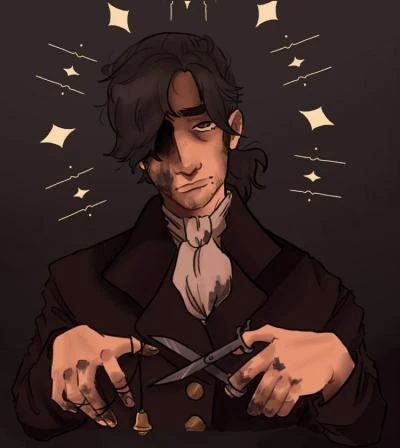Statement of Hezekiah Wakely regarding his career as a gravedigger, compiled from a series of letters to Nathaniel Beale between 1837 and 1839.
 Art by Worm-Circus
Art by Worm-Circus
Case Number
8370108
Audio By
Author
Date of Statement
1837-1839
Locations
- Dunstable, England
Meta Info
Navigation
Last Episode
Next Episode
Release Date
2019-09-05
Statement
The statement is divided into five sequential letters penned by Wakely.
August 1837
Hezekiah expressed his gratitude to Nathaniel for installing him as a sexton at a churchyard. He stated that the Reverend’s sermons are good if not sleep-inducing, and he has felt welcome and happy at the church. However, his sleep problems have not ceased despite working himself to exhaustion. He assured Nathaniel that he would not go back to alcoholism to remedy this, and that despite the morbidity of it, he only seemed to get a good night’s sleep on nights where he digs graves. He almost expressed a desire to dig more graves, but retracted it as it would mean there would need to be more deaths requiring them.
February 1838
Hezekiah, who was bedridden with a fever, expresses further his love for the churchyard due to its peaceful quiet and the knowledge of the souls contentedly buried underneath. When he could, he sleeps in the graveyard, though he assures Nathaniel that it is not out of a desire for death but the serenity of the dead. However, he recalled that his graves had been growing deeper to the point where his ladder could not reach the top, and that at one point, he lay down in one and slept in it. He described a dream in which the grave filled with rainwater and collapsed in on itself, completely burying him in soil, filling his lungs. Despite describing his terror, Hezekiah stated that the feeling was wonderful, and expressed envy at the corpses who knew the safety of being buried.
June 1838
Hezekiah described an incident with young Nellie Cooper, who was presumed dead by drowning and about to be buried in a grave he had dug earlier. She woke up inside her coffin mere minutes before she was to be buried. Her struggle caused the pallbearers to drop the coffin and it shattered on the ground. He expressed that if he were in Nellie’s situation, he would be upset that he did not get buried alive. Though she was physically unharmed, the Reverend was shaken by this and ordered the graves be fit with safety bells, to Hezekiah’s dismay.
December 1838
Hezekiah, clearly becoming more unhinged, complained about the ringing of the bells disturbing his sleep. He mentioned that the bell over Jacob the baker’s grave kept ringing, but he cut the cord as he believed Jacob deserved the rest after a life of hard work. He ends the letter by saying he can no longer get his clothes clean.
January 1839
Hezekiah expressed disappointment that after the last letter, Nathaniel reported him to the church, and he was let go even though they could not find substantial evidence that he had cut the cord. He can no longer sleep outside of the graveyard, and say he should have known Nathaniel would not understand him. He states “As I did with the Reverend, I will come and I will show you once and forever the true and glorious peace of [The Buried].”
Post-Statement
John states that he knows that Nathaniel Beale was buried on the grounds of a Church in Dunstable by Hezekiah, and John is the only person besides the two involved who is aware of this. He ponders the mental changes that must occur in the mind of an Avatar. He questions how much of it is a product of the Fears themselves, and how much is the mind simply trying to adjust to the horrifying things it finds itself drawn to. He himself does not feel different but admits that he is not in the best position to judge.
Later, John runs into Helen in the tunnels. They talk about Jane Prentiss, how during her attack on the Institute the worms were trying to form a gate and that it might have been the beginning of a ritual. Worms must have been in the tunnels for months, but failed to find Leitner, Gertrude’s body or the center of the labyrinth, where Helen says, “A delightful surprise,” awaits. John theorizes that the tunnels might be a universal blind spot for all the Powers, since he cannot see clearly there.
They discuss the morality of feeding in general and each other’s eating habits in particular. “Helen” felt guilty until she realized it was not going to stop her, so she chose to stop feeling so. Finally, John asks the question on his mind: when will The Eye finally reduce him to a cold merciless monster? Helen just laughs, because it was never on the agenda. It does not need John to be happy or stable as feeling bad has never actually stopped him from walking the path of Beholding. His feelings are irrelevant except, perhaps, as seasoning.
Continuity
- Related Entity: The Buried, and possibly The End